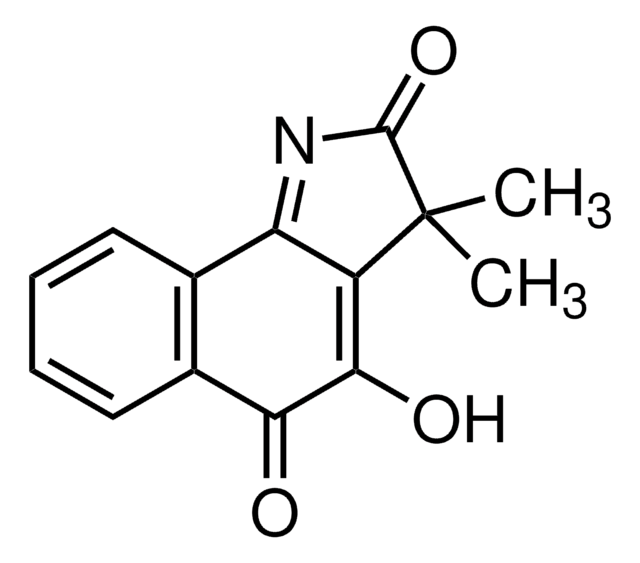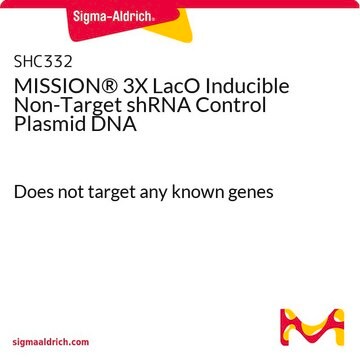R2033
RK-682
≥98% (HPLC)
Sinónimos:
(R)-3-Hexadecanoyl-5-hydroxymethyltetronic acid, (R)-4-Hydroxy-5-(hydroxymethyl)-3-(1-oxohexadecyl)-2(5H)-furanone
About This Item
Productos recomendados
Quality Level
assay
≥98% (HPLC)
form
powder
color
white to tan
solubility
DMSO, heptane and xylene: ≥8 mg/mL
storage temp.
−20°C
SMILES string
CCCCCCCCCCCCCCCC(=O)C1=C(O)[C@@H](CO)OC1=O
InChI
1S/C21H36O5/c1-2-3-4-5-6-7-8-9-10-11-12-13-14-15-17(23)19-20(24)18(16-22)26-21(19)25/h18,22,24H,2-16H2,1H3/t18-/m1/s1
InChI key
KZTSLHQKWLYYAC-GOSISDBHSA-N
Application
- as a positive control in high-performance liquid chromatography (HPLC)
- as a reference compound in high-performance liqiud chromatography (HPLC)
- as a pan-protein tyrosine phosphatase non-receptor type (PTPN) inhibitor to study its effects on the activated lymphocytes
Biochem/physiol Actions
Features and Benefits
Storage Class
11 - Combustible Solids
wgk_germany
WGK 3
flash_point_f
Not applicable
flash_point_c
Not applicable
Elija entre una de las versiones más recientes:
Certificados de análisis (COA)
¿No ve la versión correcta?
Si necesita una versión concreta, puede buscar un certificado específico por el número de lote.
¿Ya tiene este producto?
Encuentre la documentación para los productos que ha comprado recientemente en la Biblioteca de documentos.
Artículos
Protein tyrosine phosphatases' catalytic mechanism involves transient phosphorylation.
Protein tyrosine phosphatases' catalytic mechanism involves transient phosphorylation.
Protein tyrosine phosphatases' catalytic mechanism involves transient phosphorylation.
Protein tyrosine phosphatases' catalytic mechanism involves transient phosphorylation.
Nuestro equipo de científicos tiene experiencia en todas las áreas de investigación: Ciencias de la vida, Ciencia de los materiales, Síntesis química, Cromatografía, Analítica y muchas otras.
Póngase en contacto con el Servicio técnico








